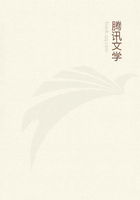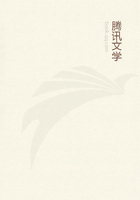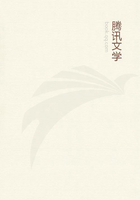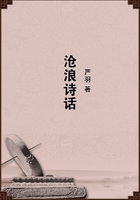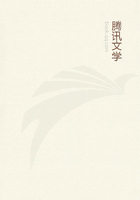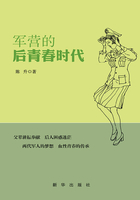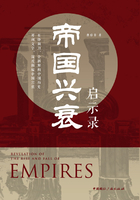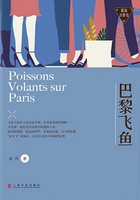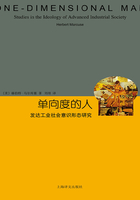But in spite of a certain apparent indolence, and her constant ill health, there were many threads that connected with the outside world the pleasant room in which Mme. de La Fayette spent so many days of suffering. "She finds herself rich in friends from all sides and all conditions," writes Mme. de Sevigne; "she has a hundred arms; she reaches everywhere. Her children appreciate all this, and thank her every day for possessing a spirit so engaging." She goes to Versailles, on one of her best days, to thank the king for a pension, and receives so many kind words that it "suggests more favors to come." He orders a carriage and accompanies her with other ladies through the park, directing his conversation to her, and seeming greatly pleased with her judicious praise. She spends a few days at Chantilly, where she is invited to all the fetes, and regrets that Mme. de Sevigne could not be with her in that charming spot, which she is "fitted better than anyone else to enjoy." No one understands so well the extent of her influence and her credit as this devoted friend, who often quotes her to Mme. de Grignan as a model.
"Never did any one accomplish so much without leaving her place," she says.
But there was one phase in the life of Mme. de La Fayette which was not fully confided even to Mme. de Sevigne. It concerns a chapter of obscure political history which it is needless to dwell upon here, but which throws much light upon her capacity for managing intricate affairs. Her connection with it was long involved in mystery, and was only unveiled in a correspondence given to the world at a comparatively recent date. It was in the salon of the Grande Mademoiselle that she was thrown into frequent relations with the two daughters of Charles Amedee de Savoie, Duc de Nemours, one of whom became Queen of Portugal, the other Duchesse de Savoie and, later, Regent during the minority of her son. These relations resulted in one of the ardent friendships which played so important a part in her career. Her intercourse with the beautiful but vain, intriguing, and imperious Duchesse de Savoie assumed the proportion of a delicate diplomatic mission. "Her salon," says Lescure, "was, for the affairs of Savoy, a center of information much more important in the eyes of shrewd politicians than that of the ambassador." She not only looked after the personal matters of Mme. Royale, but was practically entrusted with the entire management of her interests in Paris. From affairs of state and affairs of the heart to the daintiest articles of the toilette her versatile talent is called into requisition. Now it is a message to Louvois or the king, now a turn to be adroitly given to public opinion, now the selection of a perfume or a pair of gloves.
"She watches everything, thinks of everything, combines, visits, talks, writes, sends counsels, procures advice, baffles intrigues, is always in the breach, and renders more service by her single efforts than all the envoys avowed or secret whom the Duchesse keeps in France." Nor is the value of these services unrecognized. "Have I told you," wrote Mme. de Sevigne to her daughter, "that Mme. de Savoie has sent a hundred ells of the finest velvet in the world to Mme. de La Fayette, and a hundred ells of satin to line it, and two days ago her portrait, surrounded with diamonds, which is worth three hundred louis?"
The practical side of Mme. de La Fayette's character was remarkable in a woman of so fine a sensibility and so rare a genius. Her friends often sought her counsel; and it was through her familiarity with legal technicalities that La Rochefoucauld was enabled to save his fortune, which he was at one time in danger of losing. In clear insight, profound judgment, and knowledge of affairs, she was scarcely, if at all, surpassed by Mme. de Maintenon, the feminine diplomatist par excellence of her time, though her field of action was less broad and conspicuous.
But her love of consideration was not so dominant and her ambition not so active. It was one of her theories that people should live without ambition as well as without passion. "It is sufficient to exist," she said. Her energy when occasion called for it does not quite accord with this passive philosophy, and suggests at least a vast reserved force; but if she directed her efforts toward definite ends it was usually to serve other interests than her own. She had been trained in a different school from Mme. de Maintenon, her temperament was modified by her frail health, and the prizes of life had come to her apparently without special exertion. She was a woman, too, of more sentiment and imagination. Her fastidious delicacy and luxurious tastes were the subject of critical comment on the part of this austere censor, who condemned the gilded decorations of her bed as a useless extravagance, giving the characteristic reason that "the pleasure they afforded was not worth the ridicule they excited." The old friendship that had existed when Mme. Scarron was living in such elegant and mysterious seclusion, devoting herself to the king's children, and finding her main diversion in the little suppers enlivened by the wit of Mme. de Sevigne and Mme. de Coulanges, and the more serious, but not less agreeable, conversation of Mme. de La Fayette, had evidently grown cool. They had their trifling disagreements. "Mme. de La Fayette puts too high a price upon her friendship," wrote Mme. de Maintenon, who had once attached such value to a few approving words from her. In her turn Mme. de La Fayette indulged in a little light satire. Referring to the comedy of Esther, which Racine had written by command for the pupils at Saint Cyr, she said, "It represents the fall of Mme. de Montespan and the rise of Mme. de Maintenon; all the difference is that Esther was rather younger, and less of a precieuse in the matter of piety."
There was certainly less of the ascetic in Mme. de La Fayette.

